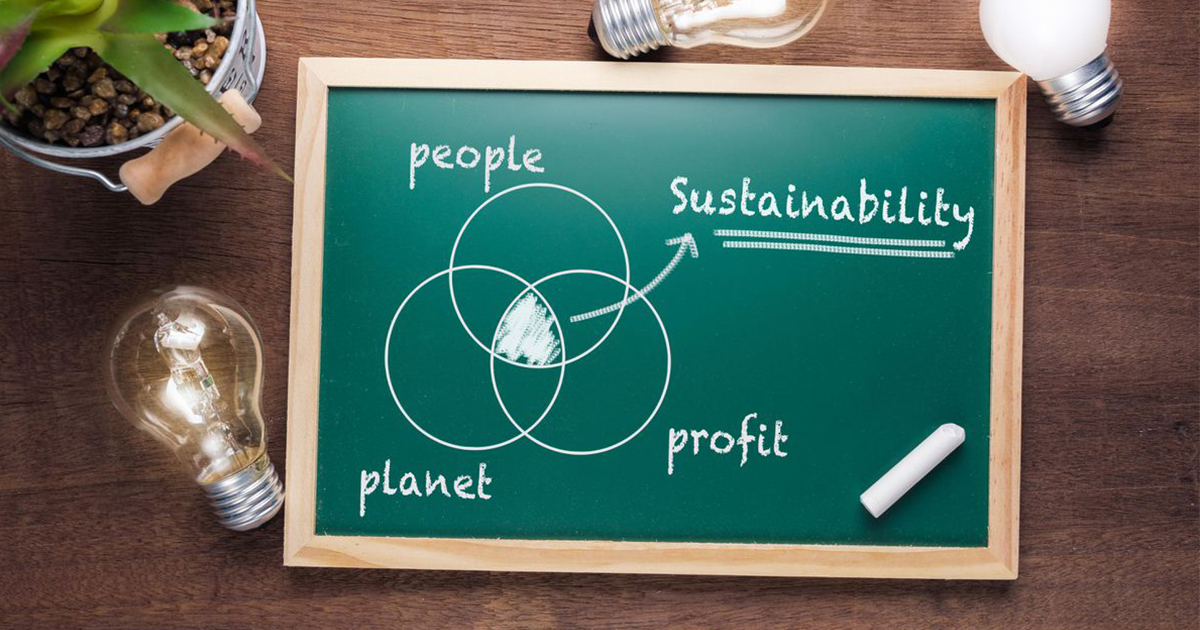Zen D’Amato Gautam, who has recently been appointed as President of
SEAM - Social Entrepreneurs Association Malta, is going to elaborate on what are
social enterprises. Zen is well known in the sustainability sphere in Malta and participated in the first edition of the Malta Sustainability Forum where she discussed the topic of conscious consumerism. She is also Founder and CEO at Eco Market Malta.
What are social enterprises?
Social enterprises are essentially businesses whose main mission is to provide a benefit to society, as opposed to the traditional business model whose main aim is to generate profit. Social enterprises combine social goals with an entrepreneurial spirit and operate in the economy with the main objective of having a social impact and making the world a better place, whilst still generating profit and revenue. Simply put, social enterprises offer innovative solutions to social problems that are more effective, efficient, sustainable, and fair than current solutions. Social enterprises lead to progress, system change and are the start of a new economic revolution, where success is measured by impact rather than by mere profit.
How is a social enterprise different from an NGO and a business?
A social enterprise can be viewed as a middle way between an NGO and a business. Like an NGO, a social enterprise has a specific environmental or community related purpose. However, an NGO is a non-profit organisation, while a social enterprise generates profit to be financially independent and able to continue its work. Like a business, a social enterprise carries out its operations by trading their products or services, but unlike traditional businesses, the aim of the social enterprise is to use the product, service and/or its operation, to contribute to the well-being of a social, cultural, or environmental cause. Globally, there are 210 million social entrepreneurs playing a key role in the social, economic, and environmental challenges that the world is facing.

In which field do most of the social enterprises in Malta work?
Social enterprises can be found in any industry including education, employment, work integration, health services, well-being, nutrition, agriculture, food and water, holistic services, medical care, professional training, childcare services, services for the elderly, differently abled or disadvantaged minorities, rural areas, environmental protection, marine life, animal rights, arts, culture, fashion, transport, mobility, sport, historical preservation, science, research, innovation, consumer protection or even aid to third world country or war/disaster stricken areas.
What is the objective of SEAM?
SEAM’s objective is to create a holistic eco-system for social entrepreneurship in Malta. This is done by raising awareness, particularly amongst start-ups and students; by facilitating the journey of the social entrepreneur and provide him/her standard entrepreneurial tools and resources; and finally, by lobbying for the recognition of the Social Enterprise Act as a legal business type in Malta and advocate for the interest of the sector at local, regional and national levels.
Why are you advocating for the recognition of the Social Enterprise Act as a legal business type in Malta?
There is currently no legal structure for social enterprises in Malta. Countries such as Denmark, Czech Republic, Italy, Portugal, Spain, Greece, Croatia, Slovakia, Poland, Lithuania, Belgium and Finland have social enterprises as a legal status. While others, such as UK, Luxembourg, France, Slovenia, Hungary, and Latvia have adapted the company or cooperative legislation to fit in social enterprises.
Social enterprises are the future framework for all businesses. The current economic model has reached its expiration date, and with the global pandemic, this statement is painfully clear. Capitalism of shareholder maximisation has created a reality where it is beneficial to look for quick wins that benefit the very few, instead of sustainable success that benefit the community at large and the planet. The 2018 Deloitte’s ‘Global Human Capital Trends’ report, sounds as a wake-up call for organisations. “The rise of social enterprises requires a determined focus on building social capital by engaging with diverse stakeholders, accounting for external trends, creating a sense of mission and purpose throughout the organisation, and devising strategies that manage new societal expectations. At stake is nothing less than an organisation’s reputation, relationships, and ultimately, success or failure.”
As SEAM, we want to ensure that the proposed bill, is in line with the Maltese realities. For instance, the bill is proposing that only Limited Liability Companies and Cooperatives can become social enterprises. Given that an estimate of 90% of social enterprises in Malta are led by sole entrepreneurs, the proposal does not represent the majority of people who already operate as a social enterprise under a sole proprietor legal form. Our efforts are focused in making the Social Enterprise Bill adequate to the current national scenario and ensure it benefits most stakeholders. While the proposed Social Enterprise Bill mentions several guidelines and restrictions, it still needs to unveil other important details, such as benefits and incentives.
What should people interested in creating their own social enterprise do if they want to join the association?
Anyone with an interest in social entrepreneurship, may join SEAM as a member, where they will become part of a networking community with regular events and cross-border collaboration opportunities. SEAM also keeps its members updated with news regarding the proposed Bill, online consultations, funding/partnership opportunities and other support services. The voluntary organisation also aims to start offering a series of professional services, such as mentorship, legal consultation, business development workshops, and so on at discounted prices to its members.
We encourage students, start-up founders and others to seriously consider starting a social enterprise. This journey will allow you to make effective positive change, respond to real needs, and will help you become an inspirational source of impact. As a social entrepreneur, you can have a meaningful job and financial freedom at the same time.
To learn more about S.E.A.M please visit
www.seam.org.mt


